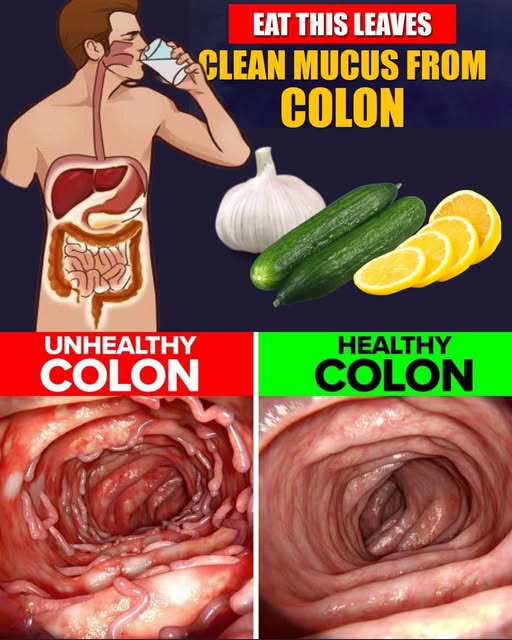Introduction: Why Your Colon Deserves More Attention Than You Think

In today’s fast-paced world, we often prioritize heart health, mental wellness, and even skincare—while completely overlooking an equally vital organ: the colon. Yet, your colon plays a crucial role in digestion, immunity, and even disease prevention. Colon issues are more common than you may think. According to the American Cancer Society, colon cancer is the third most common cancer diagnosed in both men and women in the U.S.
With our modern lifestyle marked by processed foods, stress, and sedentary routines, your colon needs extra care. Fortunately, small and intentional daily habits can create profound changes. In this article, you’ll discover 14 powerful, science-backed, and actionable ways to keep your colon healthy and functioning at its best.
Let’s dive in and transform your gut health—starting today.
14 Life-Changing Ways to Keep Your Colon Healthy
1. Eat More Fiber—The Unsung Hero of Digestive Health
Why it matters: Fiber helps regulate bowel movements, prevents constipation, and feeds healthy gut bacteria.
📊 Fact: The average adult only consumes 15 grams of fiber per day—well below the recommended 25-38 grams.
How to implement:
- Add fruits like apples, pears, and berries.
- Include vegetables, legumes, whole grains, and chia seeds daily.
2. Stay Hydrated—Your Colon Needs Water to Function Smoothly
Water keeps stool soft and easy to pass, preventing painful constipation and straining.
Action Tip: Aim for at least 8 glasses (2 liters) per day, more if you’re active or live in a hot climate.
3. Limit Red and Processed Meats—Linked to Colon Cancer
WHO studies show that processed meat is a Group 1 carcinogen. Frequent consumption increases your risk of colorectal cancer significantly.
Swap with:
- Lean proteins like fish, chicken, tofu, and lentils.
- Plant-based options to reduce inflammation.
4. Prioritize Probiotics—Good Bacteria, Great Results
Probiotics support gut flora balance, enhance digestion, and improve immunity.
Best sources:
- Yogurt with live cultures
- Kefir
- Kimchi
- Sauerkraut
- Fermented pickles
Supplement smart: If opting for pills, look for a multi-strain probiotic with at least 1 billion CFUs.
5. Exercise Regularly—Keep Things Moving
Physical activity stimulates the intestines and speeds up digestion.
Bonus: Just 30 minutes of moderate exercise, like walking or yoga, can reduce your risk of colon cancer by up to 24%.
6. Get Screened—Early Detection Saves Lives
Colon cancer often develops silently. Regular screenings can catch polyps before they turn cancerous.
✅ The CDC recommends screening starting at age 45, or earlier if you have a family history.
7. Avoid Smoking—Your Colon Is a Target Too
You already know the dangers of smoking for your lungs, but smoking also increases the risk of colon polyps and cancer.
Action Plan: Seek support groups or nicotine replacement therapies if you’re ready to quit. Your colon—and whole body—will thank you.
8. Limit Alcohol—A Hidden Risk Factor
Heavy alcohol consumption inflames the gut lining, disrupts microbiota, and increases colorectal cancer risk.
Guideline:
- No more than 1 drink/day for women and 2 for men.
9. Reduce Stress—Your Gut Feels Everything
Ever felt digestive issues during intense stress? That’s no coincidence.
Stress alters gut-brain signals and contributes to inflammation and IBS.
Try this:
- Deep breathing
- Journaling
- Nature walks
- Meditation or mindfulness apps
10. Maintain a Healthy Weight—Obesity Is a Colon Risk Factor
Excess weight, especially around the abdomen, is linked to a higher risk of colon disease and cancer.
Strategy: Combine a balanced diet with consistent movement. Even a 10% weight loss can significantly reduce colon strain.
11. Eat More Antioxidant-Rich Foods—Your Colon’s Defense System
Free radicals can damage colon cells and lead to inflammation.
Superfoods for your colon:
- Blueberries
- Spinach
- Green tea
- Nuts
- Turmeric
12. Get Enough Sleep—Your Gut Works While You Rest
Poor sleep weakens the immune system and disrupts gut microbiota.
Sleep tip: Aim for 7–9 hours of quality, uninterrupted sleep each night to give your colon time to recover and reset.
13. Watch Out for Artificial Additives—Your Colon Isn’t Designed for Chemicals
Preservatives, food dyes, and synthetic flavorings can irritate the gut lining and harm beneficial bacteria.
Avoid: Foods with long ingredient lists, especially those ending in “-ate” or “-ite.”
14. Consider a Colon Cleanse (Only When Necessary)—But Skip the Fads
While trendy detox teas and colonics are often overhyped, occasional cleansing under medical supervision can help with chronic constipation or sluggish digestion.
Rule of Thumb: Never attempt a DIY cleanse without guidance from a health professional.
Frequently Asked Questions (FAQs)
❓ How often should I have a colonoscopy?
Answer: Every 10 years starting at age 45 if you’re at average risk. More frequently if there’s a family history or symptoms.
❓ Can poor colon health affect my skin or energy levels?
Yes. An unhealthy colon leads to toxin build-up, impacting skin clarity and causing fatigue due to improper nutrient absorption.
❓ Are there signs of an unhealthy colon I should watch for?
Definitely. Warning signs include:
- Irregular bowel movements
- Bloating and gas
- Unexplained weight loss
- Blood in stool
- Persistent fatigue
❓ What’s the connection between colon health and mental clarity?
The gut-brain axis is a real, scientifically validated phenomenon. A healthy colon fosters better focus, reduced anxiety, and improved mood.
❓ Are supplements necessary for colon health?
They’re helpful but not essential. Whole foods always come first. However, supplements like magnesium, fiber, and probiotics can support specific needs.
Conclusion: Your Colon Is the Gateway to Lifelong Health
Ignoring colon health can lead to silent yet serious consequences. But the good news is that with just a few targeted lifestyle changes, you can dramatically improve your colon function, reduce your risk of disease, and feel better from the inside out.
These 14 life-changing habits aren’t just trends—they’re clinically proven, achievable strategies that can upgrade your digestive health, boost energy, and potentially add years to your life.
So don’t wait for a problem to arise. Start today. Because a healthy colon isn’t just about digestion—it’s about living a longer, stronger, and happier life.


